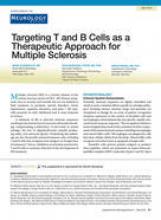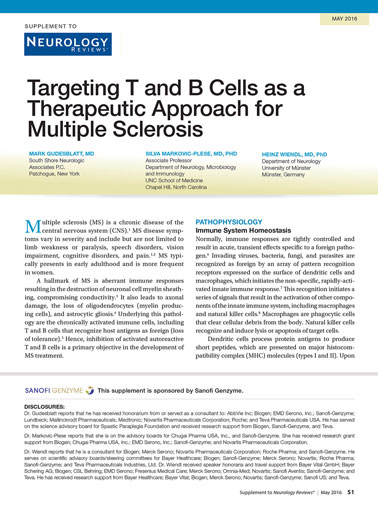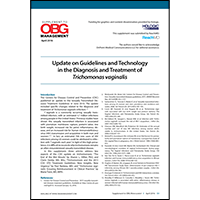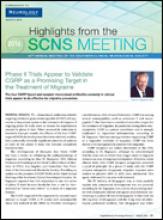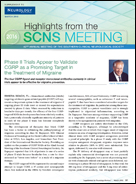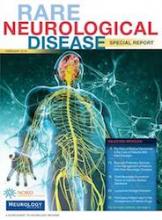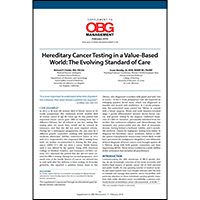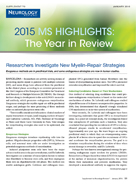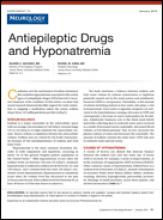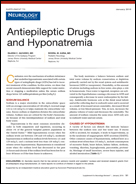User login
Advances in menopause transition management
Guest Editor
Andrew M. Kaunitz, MD
Authors
Sheryl Kingsberg, PhD; Michael Krychman, MD; Juliana M. Kling, MD, MPH; JoAnn E. Manson, MD, DrPH; James H. Liu, MD; Gretchen Collins, MD; Susan Kellogg Spadt, PhD, CRNP, IF, FCST, CSC
The object of this special issue is to enhance how you respond to and manage patients' menopausal and sexuality symptom concerns. The articles aim to alert women's health professionals to:
- the effects of sexual dysfunction, genitourinary syndrome of menopause in particular, on women emotionally and physically, and the available treatment options
- current nonhormonal treatment for hot flashes
- latest data on SERMs' role in managing menopausal symptoms, considering matching patients' symptoms to agents
- recommendations for intimacy counseling.
Articles included:

Not enough women are receiving treatment for bothersome menopausal symptoms
Andrew M. Kaunitz, MD
Mitigating the impact of genitourinary syndrome of menopause on sexuality
Sheryl Kingsberg, PhD, and Michael Krychman, MD
Nonhormonal treatment options for vasomotor symptoms of menopause
Juliana M. Kling, MD, MPH, and JoAnn E. Manson, MD, DrPH
SERMs in menopause: Matching agents to patients' symptoms and attributes
James H. Liu, MD, and Gretchen Collins, MD
Tips for counseling women about intimacy after menopause
Susan Kellogg Spadt, PhD, CRNP, IF, FCST, CSC
Guest Editor
Andrew M. Kaunitz, MD
Authors
Sheryl Kingsberg, PhD; Michael Krychman, MD; Juliana M. Kling, MD, MPH; JoAnn E. Manson, MD, DrPH; James H. Liu, MD; Gretchen Collins, MD; Susan Kellogg Spadt, PhD, CRNP, IF, FCST, CSC
The object of this special issue is to enhance how you respond to and manage patients' menopausal and sexuality symptom concerns. The articles aim to alert women's health professionals to:
- the effects of sexual dysfunction, genitourinary syndrome of menopause in particular, on women emotionally and physically, and the available treatment options
- current nonhormonal treatment for hot flashes
- latest data on SERMs' role in managing menopausal symptoms, considering matching patients' symptoms to agents
- recommendations for intimacy counseling.
Articles included:

Not enough women are receiving treatment for bothersome menopausal symptoms
Andrew M. Kaunitz, MD
Mitigating the impact of genitourinary syndrome of menopause on sexuality
Sheryl Kingsberg, PhD, and Michael Krychman, MD
Nonhormonal treatment options for vasomotor symptoms of menopause
Juliana M. Kling, MD, MPH, and JoAnn E. Manson, MD, DrPH
SERMs in menopause: Matching agents to patients' symptoms and attributes
James H. Liu, MD, and Gretchen Collins, MD
Tips for counseling women about intimacy after menopause
Susan Kellogg Spadt, PhD, CRNP, IF, FCST, CSC
Guest Editor
Andrew M. Kaunitz, MD
Authors
Sheryl Kingsberg, PhD; Michael Krychman, MD; Juliana M. Kling, MD, MPH; JoAnn E. Manson, MD, DrPH; James H. Liu, MD; Gretchen Collins, MD; Susan Kellogg Spadt, PhD, CRNP, IF, FCST, CSC
The object of this special issue is to enhance how you respond to and manage patients' menopausal and sexuality symptom concerns. The articles aim to alert women's health professionals to:
- the effects of sexual dysfunction, genitourinary syndrome of menopause in particular, on women emotionally and physically, and the available treatment options
- current nonhormonal treatment for hot flashes
- latest data on SERMs' role in managing menopausal symptoms, considering matching patients' symptoms to agents
- recommendations for intimacy counseling.
Articles included:

Not enough women are receiving treatment for bothersome menopausal symptoms
Andrew M. Kaunitz, MD
Mitigating the impact of genitourinary syndrome of menopause on sexuality
Sheryl Kingsberg, PhD, and Michael Krychman, MD
Nonhormonal treatment options for vasomotor symptoms of menopause
Juliana M. Kling, MD, MPH, and JoAnn E. Manson, MD, DrPH
SERMs in menopause: Matching agents to patients' symptoms and attributes
James H. Liu, MD, and Gretchen Collins, MD
Tips for counseling women about intimacy after menopause
Susan Kellogg Spadt, PhD, CRNP, IF, FCST, CSC
Targeting T and B Cells as a Therapeutic Approach for Multiple Sclerosis
Immunotherapies that target abnormally activated T and B cells may represent a unique combination and promising DMT strategy for patients with RRMS and have the greatest potential for long-term success. Targeting T cells in MS may help attenuate initiation and maintenance of inflammatory attacks by reducing the production of pro-inflammatory cytokines, recruitment of innate immune cells, stimulation of antibody production, and direct attack of myelin. Targeting B cells in MS may attenuate secretion of autoantibodies and pro-inflammatory cytokines, as well as presentation of self-antigen to T cells.
Click here to read the digital edition.
Immunotherapies that target abnormally activated T and B cells may represent a unique combination and promising DMT strategy for patients with RRMS and have the greatest potential for long-term success. Targeting T cells in MS may help attenuate initiation and maintenance of inflammatory attacks by reducing the production of pro-inflammatory cytokines, recruitment of innate immune cells, stimulation of antibody production, and direct attack of myelin. Targeting B cells in MS may attenuate secretion of autoantibodies and pro-inflammatory cytokines, as well as presentation of self-antigen to T cells.
Click here to read the digital edition.
Immunotherapies that target abnormally activated T and B cells may represent a unique combination and promising DMT strategy for patients with RRMS and have the greatest potential for long-term success. Targeting T cells in MS may help attenuate initiation and maintenance of inflammatory attacks by reducing the production of pro-inflammatory cytokines, recruitment of innate immune cells, stimulation of antibody production, and direct attack of myelin. Targeting B cells in MS may attenuate secretion of autoantibodies and pro-inflammatory cytokines, as well as presentation of self-antigen to T cells.
Click here to read the digital edition.
Pathophysiology of Type 2 Diabetes: The Evolution of Our Understanding
Update on Guidelines and Technology in the Diagnosis and Treatment of Trichomonas vaginalis
The Centers for Disease Control and Prevention (CDC) published an update to the Sexually Transmitted Diseases Treatment Guidelines in June 2015. This supplement covers the specific changes related to the diagnosis and treatment of Trichomonas vaginalis infection.
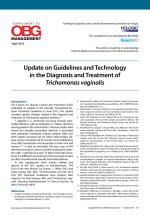
Click here to download the PDF.
Sharon L. Hillier, PhD
Professor
Departments of Obstetrics, Gynecology and
Reproductive Sciences and Microbiology
and Molecular Genetics
University of Pittsburgh School of Medicine
Pittsburgh, Pennsylvania
Claire Danby, MD, MSc
Assistant Professor
Tufts University School of Medicine
Boston, Massachusetts
Department of Obstetrics and Gynecology
Maine Medical Center
Portland, Maine
Paul Nyirjesy, MD
Professor
Departments of Obstetrics and Gynecology and Medicine
Director, Drexel Vaginitis Center
Drexel University College of Medicine
Philadelphia, Pennsylvania
Maria Trent, MD, MPH
Associate Professor of Pediatrics
Division of General Pediatrics and Adolescent Medicine
Johns Hopkins School of Medicine
Baltimore, Maryland
Disclosures: Dr. Hillier reports that she is a consultant to Perrigo and Symbiomix and has an ongoing relationship with Becton Dickinson, Cepheid, and Hologic. Dr. Danby reports no financial relationships relevant to this article. Dr. Nyirjesy reports that he is a consultant to Hologic and has received a research grant from Becton Dickinson. Dr. Trent reports that she is the Principal Investigator of an unrestricted research grant to Johns Hopkins University (employer) from Hologic, Inc.
The Centers for Disease Control and Prevention (CDC) published an update to the Sexually Transmitted Diseases Treatment Guidelines in June 2015. This supplement covers the specific changes related to the diagnosis and treatment of Trichomonas vaginalis infection.

Click here to download the PDF.
Sharon L. Hillier, PhD
Professor
Departments of Obstetrics, Gynecology and
Reproductive Sciences and Microbiology
and Molecular Genetics
University of Pittsburgh School of Medicine
Pittsburgh, Pennsylvania
Claire Danby, MD, MSc
Assistant Professor
Tufts University School of Medicine
Boston, Massachusetts
Department of Obstetrics and Gynecology
Maine Medical Center
Portland, Maine
Paul Nyirjesy, MD
Professor
Departments of Obstetrics and Gynecology and Medicine
Director, Drexel Vaginitis Center
Drexel University College of Medicine
Philadelphia, Pennsylvania
Maria Trent, MD, MPH
Associate Professor of Pediatrics
Division of General Pediatrics and Adolescent Medicine
Johns Hopkins School of Medicine
Baltimore, Maryland
Disclosures: Dr. Hillier reports that she is a consultant to Perrigo and Symbiomix and has an ongoing relationship with Becton Dickinson, Cepheid, and Hologic. Dr. Danby reports no financial relationships relevant to this article. Dr. Nyirjesy reports that he is a consultant to Hologic and has received a research grant from Becton Dickinson. Dr. Trent reports that she is the Principal Investigator of an unrestricted research grant to Johns Hopkins University (employer) from Hologic, Inc.
The Centers for Disease Control and Prevention (CDC) published an update to the Sexually Transmitted Diseases Treatment Guidelines in June 2015. This supplement covers the specific changes related to the diagnosis and treatment of Trichomonas vaginalis infection.

Click here to download the PDF.
Sharon L. Hillier, PhD
Professor
Departments of Obstetrics, Gynecology and
Reproductive Sciences and Microbiology
and Molecular Genetics
University of Pittsburgh School of Medicine
Pittsburgh, Pennsylvania
Claire Danby, MD, MSc
Assistant Professor
Tufts University School of Medicine
Boston, Massachusetts
Department of Obstetrics and Gynecology
Maine Medical Center
Portland, Maine
Paul Nyirjesy, MD
Professor
Departments of Obstetrics and Gynecology and Medicine
Director, Drexel Vaginitis Center
Drexel University College of Medicine
Philadelphia, Pennsylvania
Maria Trent, MD, MPH
Associate Professor of Pediatrics
Division of General Pediatrics and Adolescent Medicine
Johns Hopkins School of Medicine
Baltimore, Maryland
Disclosures: Dr. Hillier reports that she is a consultant to Perrigo and Symbiomix and has an ongoing relationship with Becton Dickinson, Cepheid, and Hologic. Dr. Danby reports no financial relationships relevant to this article. Dr. Nyirjesy reports that he is a consultant to Hologic and has received a research grant from Becton Dickinson. Dr. Trent reports that she is the Principal Investigator of an unrestricted research grant to Johns Hopkins University (employer) from Hologic, Inc.
Highlights From the SCNS Meeting
Click here to download the digital edition.
Click here to download the digital edition.
Click here to download the digital edition.
Rare Neurological Disease Special Report
Click here to visit the digital edition.
Click here to visit the digital edition.
Click here to visit the digital edition.
Hereditary Cancer Testing in a Value Based World: The Evolving Standard of Care
Commemorating the 20th anniversary of BRCA genetic testing, we are increasingly conscious of the social, economic, and medico-legal impacts of genetic cancer risk on both personal and public health. An ever-growing number of medical societies and expert panels have now charged clinicians with the duty to evaluate and manage their patients’ cancer risk profiles, with particular attention to those individuals carrying genetic mutations that confer elevated cancer susceptibility, a process commonly known as hereditary cancer risk assessment, or HCRA.
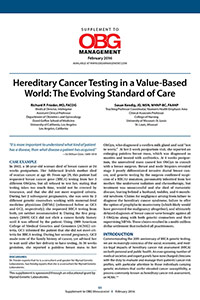
Click here to download the PDF.
This article is written for women’s health care clinicians, and will address the current status of hereditary cancer genetic testing, focusing on the evolution of pan-cancer, multigene panel testing in the context of value-based medicine.
Click on the video below to watch Dr. Frieder discuss Hereditary Cancer Testing.
Commemorating the 20th anniversary of BRCA genetic testing, we are increasingly conscious of the social, economic, and medico-legal impacts of genetic cancer risk on both personal and public health. An ever-growing number of medical societies and expert panels have now charged clinicians with the duty to evaluate and manage their patients’ cancer risk profiles, with particular attention to those individuals carrying genetic mutations that confer elevated cancer susceptibility, a process commonly known as hereditary cancer risk assessment, or HCRA.

Click here to download the PDF.
This article is written for women’s health care clinicians, and will address the current status of hereditary cancer genetic testing, focusing on the evolution of pan-cancer, multigene panel testing in the context of value-based medicine.
Click on the video below to watch Dr. Frieder discuss Hereditary Cancer Testing.
Commemorating the 20th anniversary of BRCA genetic testing, we are increasingly conscious of the social, economic, and medico-legal impacts of genetic cancer risk on both personal and public health. An ever-growing number of medical societies and expert panels have now charged clinicians with the duty to evaluate and manage their patients’ cancer risk profiles, with particular attention to those individuals carrying genetic mutations that confer elevated cancer susceptibility, a process commonly known as hereditary cancer risk assessment, or HCRA.

Click here to download the PDF.
This article is written for women’s health care clinicians, and will address the current status of hereditary cancer genetic testing, focusing on the evolution of pan-cancer, multigene panel testing in the context of value-based medicine.
Click on the video below to watch Dr. Frieder discuss Hereditary Cancer Testing.
2015 MS Highlights: The Year in Review
Click here to download the PDF.
Click here to download the PDF.
Click here to download the PDF.

